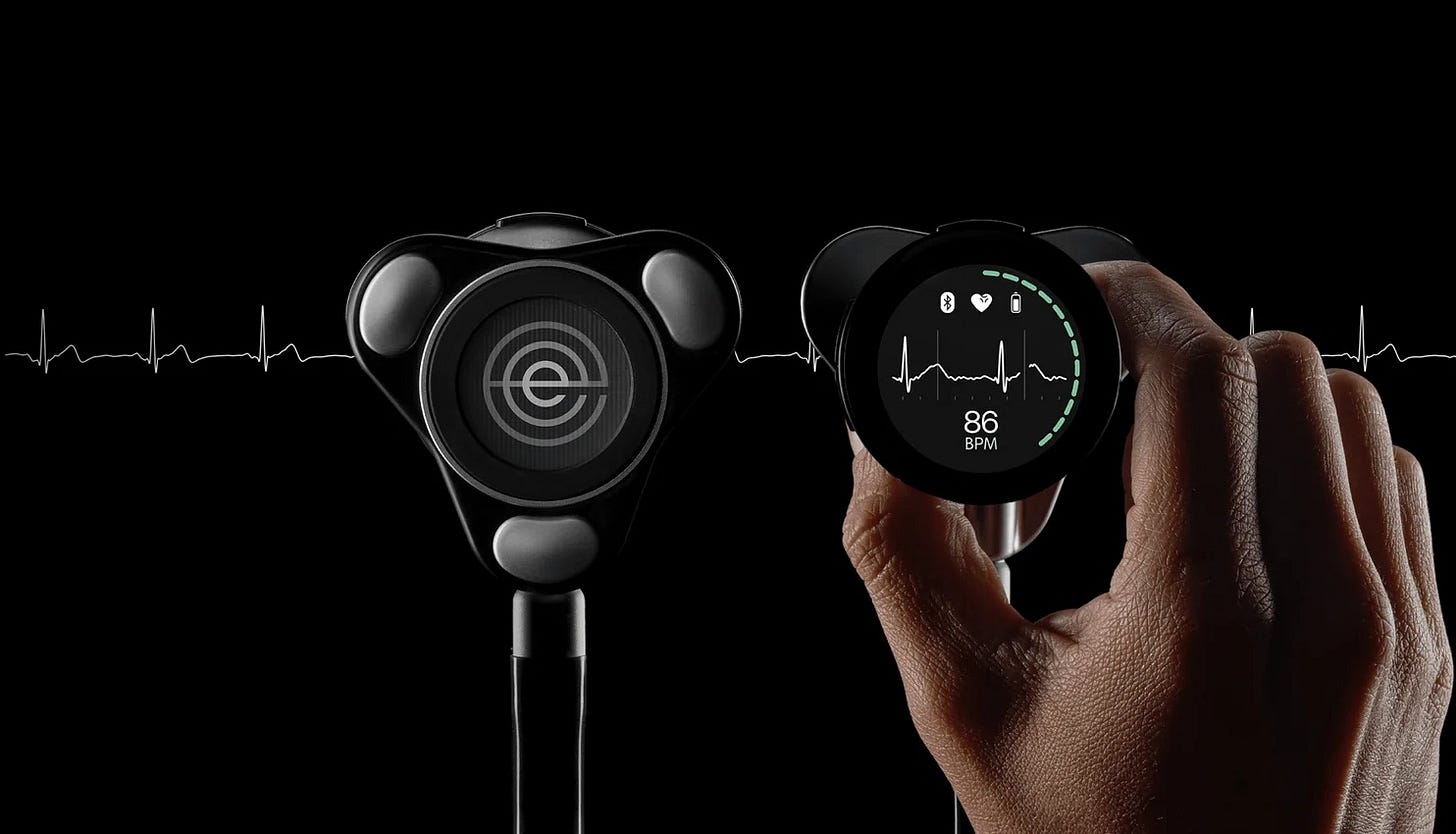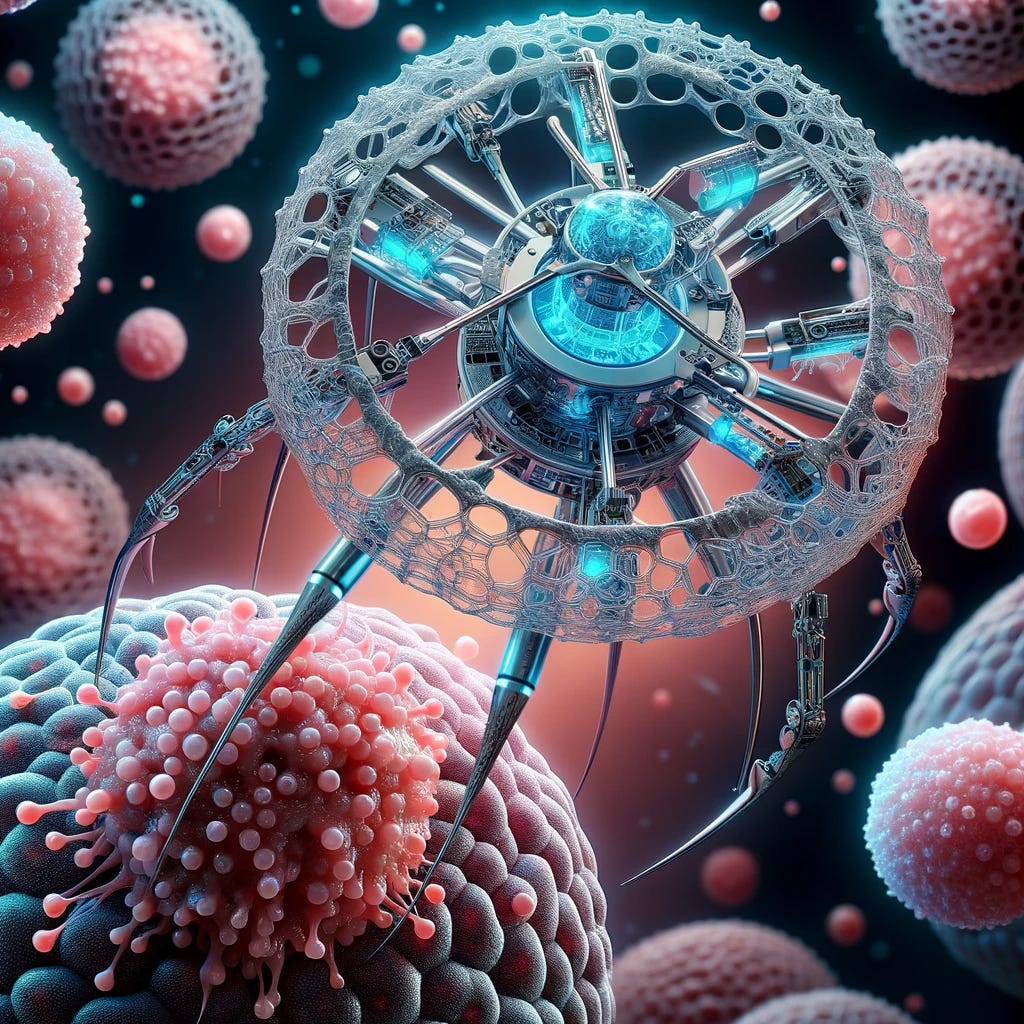🚀 AI Transformations in Medicine: Heart Disease Detection, Antibiotic Breakthroughs, Autism Diagnosis, Malaria Prediction, and Cancer-Fighting Nano Drones Unveiled! 🌟🔬🧬
Updates on Artificial Intelligence & Emerging Technologies in Medicine 🤖🩺🚀
“Eventually, doctors will adopt AI and algorithms as their work partners. This leveling of the medical knowledge landscape will ultimately lead to a new premium: to find and train doctors who have the highest level of emotional intelligence.” ― Eric Topol, Deep Medicine: How Artificial Intelligence Can Make Healthcare Human Again
Dear Med AI Enthusiast,
Welcome to The ‘Med AI’ Capsule fortnightly newsletter, your inside look at how artificial intelligence and emerging technologies are revolutionizing medicine.⚕
Whether you're a medical professional 👩⚕️, a technology enthusiast 💻, or simply someone with a curious mind 🧠, The 'Med AI' Capsule is designed for you.
It helps you stay informed 📰 about the latest groundbreaking updates and offers insights into the rapidly evolving world 🌍 of artificial intelligence and emerging technologies in medicine.
Let the adventure begin! I'm thrilled to have you along for the ride. 🚀
In today’s capsule:
4 Med AI News Updates
1 Emerging Tech News Update
1 Upcoming Med AI Event
Reading Time: 5-7 minutes
Med AI News Updates 📰
1. 🧬 AI-Powered Stethoscope Enhances Heart Disease Diagnosis in UK Clinics

Why Important: An AI-powered stethoscope is transforming the diagnosis of heart disease in underprivileged areas of the UK.
This tool, licensed for use by general physicians, can instantly detect heart conditions, potentially saving lives and significantly reducing the strain on the National Health Service (NHS).
“There are around 300,000 patients on diagnostic waiting lists for heart conditions. This is a route to treating patients early while they wait.” - Mihir Kelshiker, NHS cardiologist and clinical fellow at Imperial College London
Caution: While the AI stethoscope shows promise, it still requires a blood test confirmation for diagnosis, and the technology needs broader adoption and familiarization among medical practitioners.
2. 🔬 AI Discovers New Antibiotics to Combat Drug-Resistant Bacteria
Why Important: Artificial intelligence has played a pivotal role in discovering a new class of antibiotics capable of treating infections by drug-resistant bacteria like MRSA and vancomycin-resistant Enterococcus.
This breakthrough could be a major step in combating the growing threat of antibiotic resistance, which is a significant global health concern.
“Our [AI] models tell us not only which compounds have selective antibiotic activity, but also why, in terms of their chemical structure.” - Felix Wong at the Broad Institute of MIT and Harvard in Massachusetts
Caution: While this discovery marks a significant advancement, the journey from laboratory findings to widespread clinical use involves rigorous testing and regulatory approvals, emphasizing the need for ongoing research and development in this field.
3. 🧠 Korean Study Reveals AI Tool's High Accuracy in Diagnosing Autism in Children

Why Important: A groundbreaking study from Korea demonstrates the effective use of AI in accurately diagnosing Autism Spectrum Disorder (ASD) in children.
Published in 'JAMA Network Open', the study highlights the AI system's ability to identify autism by analyzing patterns in children's retinas, marking a significant advancement in the application of AI in medical diagnostics.
Caution: The study noted limitations in the AI tool's precision in estimating the autism spectrum severity and its applicability in children under four years of age, as the retina is not fully developed until then.
These factors highlight the need for further research to refine and validate the tool's effectiveness across different age groups.
4. 🦟 Pioneering AI Predicts Malaria Hotspots: MBZUAI's Breakthrough in Disease Forecasting

Why Important: Researchers at Mohamed bin Zayed University of Artificial Intelligence (MBZUAI) are utilizing artificial intelligence to predict potential malaria outbreaks.
This innovative approach involves analyzing sensory data related to weather conditions, heat, and humidity to identify geographical areas at risk of the disease.
“A digital twin is a virtual representation of any living or non-living entity, so, technically, a digital twin is our virtual representation of a city, forest or tree. We perform interactions and we try to understand what's going on as if it was a real representation [of the world].” - Abdulmotaleb El Saddik, professor of computer vision at MBZUAI
Caution: The promising AI-based approach for predicting malaria outbreaks by MBZUAI requires further real-world validation for effectiveness and accuracy, and its potential adaptability to other diseases like dengue fever underscores the importance of continued research and development.
Emerging Tech News Update 📰
🔬 UNIST Researchers Unveil "NKeNDs": Nanodrones Targeting Cancer Cells with Precision
Why Important: The development of these NK cell-engaging nano drones (NKeNDs) offers a novel and highly precise method of targeting and destroying cancer cells.
These nano drones are engineered to specifically seek out cancer cells and unleash the body's immune system to destroy them, marking a revolutionary step in oncological therapy.
Caution: While the potential of NKeNDs is immense, further research and clinical trials are necessary to fully understand their efficacy and safety in human applications, as well as their adaptability to different types of cancers.
Upcoming Med AI Event 🧑💻
Stay tuned for our upcoming editions as we explore the latest breakthroughs and dive deep into the transformative power of artificial intelligence and emerging technologies, shaping a healthier future. 🚀
Warm regards,

P.S.: If you're a medical professional intrigued by artificial intelligence, but not sure where to start, feel free to reach out to me for personalised guidance.
You can also check out and join our educational WhatsApp Community for Medical Professionals.








